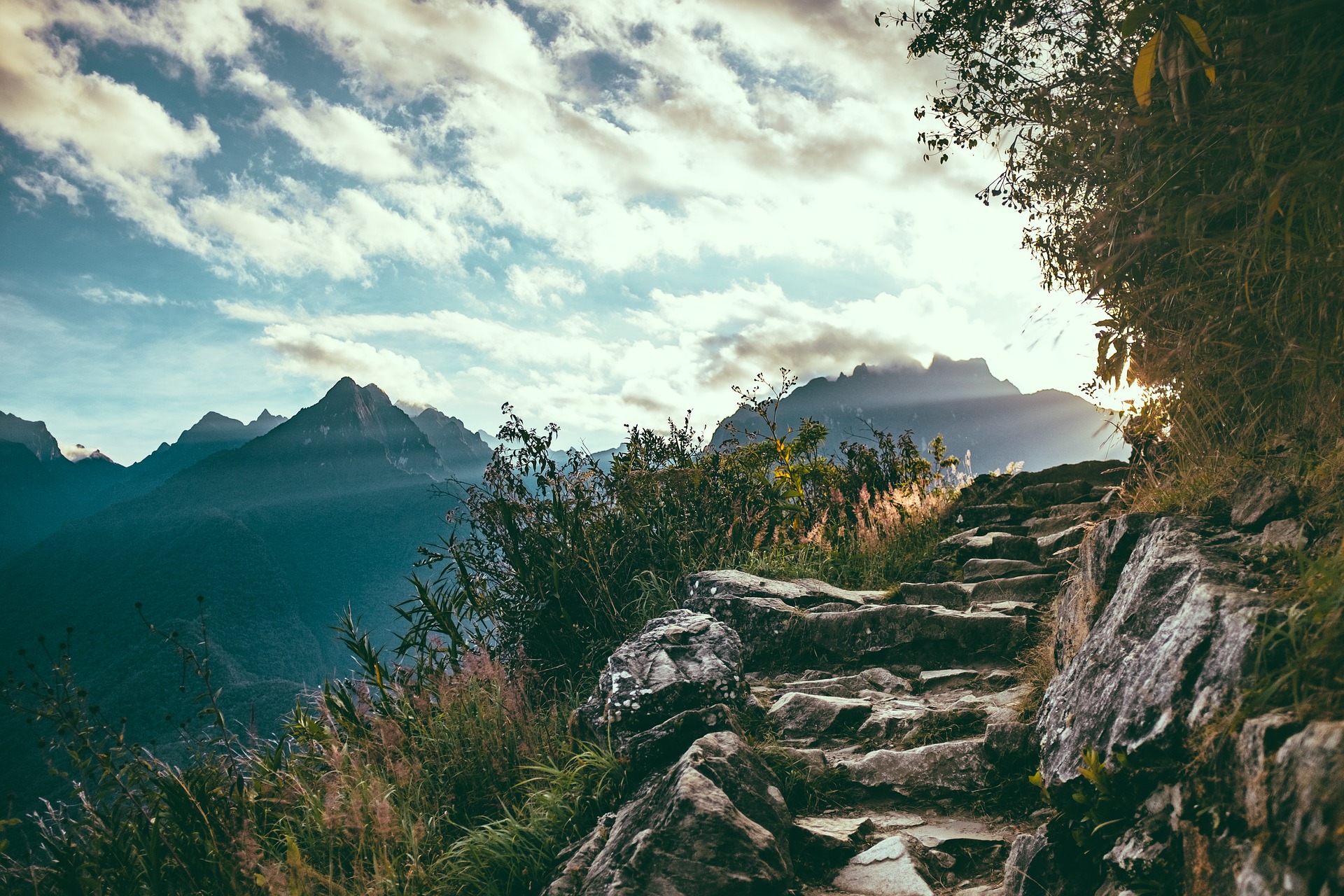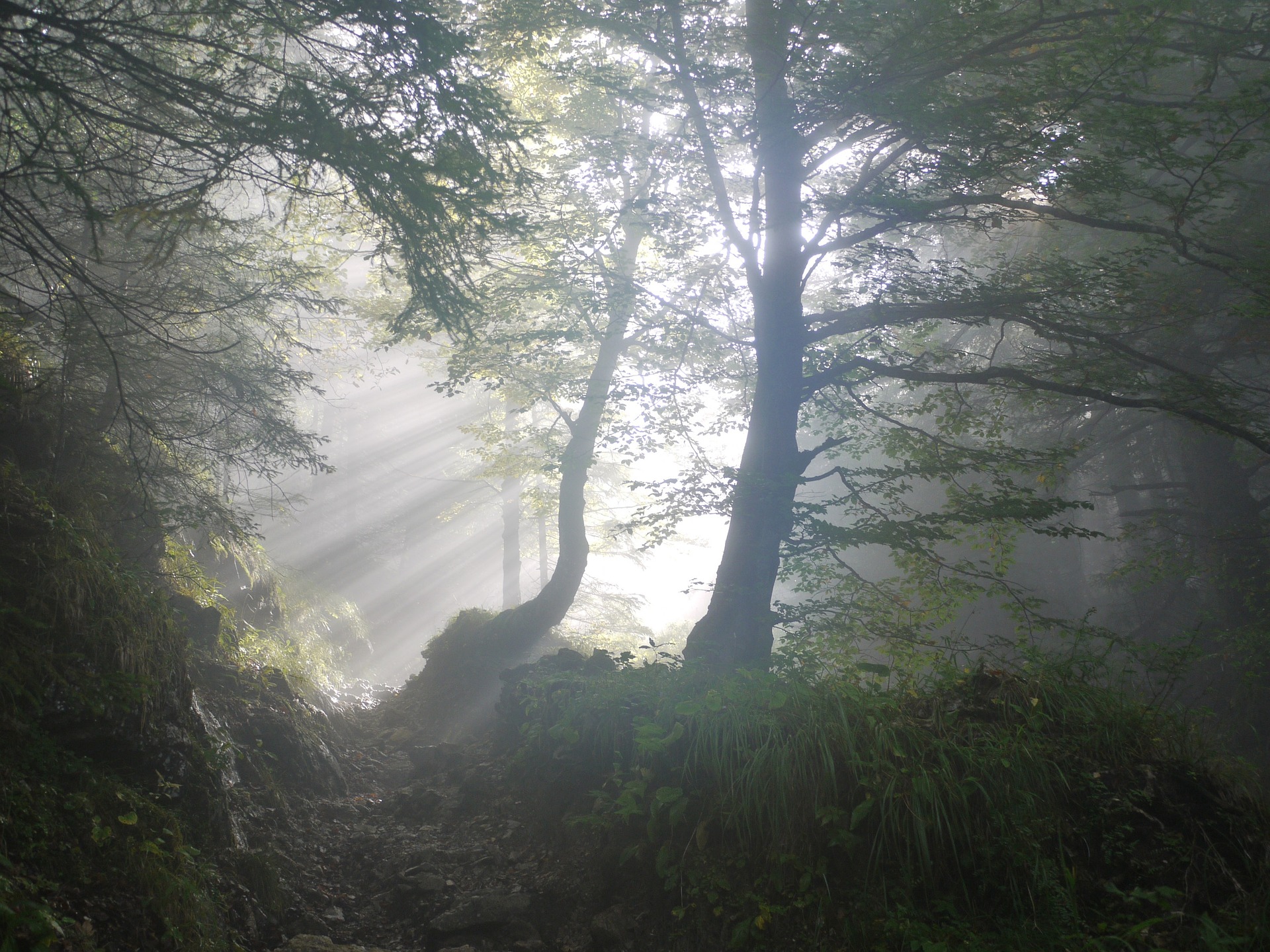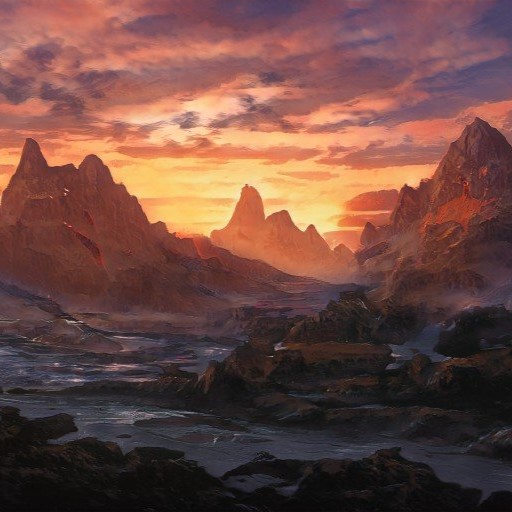The Wanderers
The lands are ever changing; mountains will rise and fall, forests will burn and grow back again, the rivers will carve their way through the landscape. But in all this change there is but one true constant. The Wanderers will make every new place their home.
Wherever you go in Tosormi you can be sure of the fact that sooner or later you will meet a caravan of Wanderers. These the oldest people of the lands are more adaptable than any who have come later and have managed to spread to every corner of the continent, no matter how harsh. And here they live almost in the same way as they have done for generations.
History
No one knows when the Wanderers came to Tosormi. Some say they have always been here, and that might be true. They do not consider the land theirs, but rather they belong to it and are a part of it.
When The Rooted came to Tosormi some 400 years ago it didn't take long for them to discover the new continent weren't so empty of people as they thought, but it also stood clear very fast that neither the Rooted or the Wanderers were aggressive people. The Rooted simply wanted land to build their villages, sow their crops and feed their animals, and since that was not something the Wanderers were very interested in, although they found the idea quite unnatural, they soon settled into their new roles as neighbours.
The arrival of the Rooted did change the Wanderers however. Even if they had always done some trading among each other and between the different group of Wanderers, they now also gained to role as traders and messengers between the different Rooted villages. In more densely populated places this is now the main livelihood of a lot of Wanderer groups, but for the most part the trading comes second to the hunting and herding that have supported the people for centuries.
Different kind of Wanderers
Although generally seen as one single group of people both by outsiders and among themselves, there are certain bigger differences between groups of Wanderers in different places. However, the biggest difference between groups is how they make their livelihood.
The Xuis
Perhaps the most characteristic of the Wanderers are the beastmasters Xuis, named after their huge beasts that carry their whole lives. These enourmous herbivores are fitted with platforms on their back where the people build simple huts (known as Briri (ʙiri)) where they live and store their property. Their animals are sturdy and can travel for a long time without rest, eating from trees and bushes as they pass them. It is not unusual for the caravans to travel throughout the night. Xuis tribes are those who most of all have turned to trading, crossing huge distances with their caravans. They trade both between their own nomadic clans and the settlements all over Tosormi, and work as a messenger system across the land. However they still rely heavily on hunting and gathering during their travels. Individuals and smaller groups usually go out with smaller, faster mounts so they can easily get back to the caravan even if it is on the move. Thanks to their function as messengers they are usually welcome everywhere.The Herders
Across the huge fields in the southern-central parts of Tosormi, herds of grazing animals make their home. And where these animals go, the Herders will follow. Even though the animals are mostly still wild, they are being protected by the group of herders walking with them. They live in a symbiotic relationship where the Herders take care of injured animals and protect them from other predators, while taking older animals to feed themself and as a resource for almost everything in their lives. The life of the Herders largely follow the animals. During the drier months in the summer and autumn, the animals come together in huge groups along the rivers and lakes where water is more secure, and thus the people come together as well. During this time they form bigger, more permanent settlements and usually spend a lot more time together, having large feasts to create stronger bonds between groups. As the rain comes back and fills up smaller water sources out in the fields the animals split up and head out, and their people follows.
by Pexels
The Mountain people
When they say the Wanderers have managed to spread all of Tosormi, they mean all over. Even in the mountain range in the central parts of Tosormi, people make their home. These people rely heavily on the seasons. During the warmer months they go high up in the mountains, hunting and gathering the sparce resources that do exist here. When the weather starts getting colder and the threat of snow storms get too real, they wander down to lower lands, and just like the Herders during the dry season they here form bigger settlements with other families.Other groups
Of course there are a lot of families, groups, and tribes that don't clearly fall into any of these categories. These are Wanderers all over Tosormi who live their lives as hunters and gatherers, just trying to survive as best as they can.Diplomacy
Wanderers as a whole are very peaceful. The get along well with the farming outlanders and tend to be more open than suspicious to strangers. What fighting do occur is usually between family groups, when someone feel mistreated or insulted. Especially when gathered in larger settlements for extended periods of times there tend to be trouble just because there is a lot of people in the same place. Apart from the groups up in the northern arid areas, who have something resembling a justice system, fights and arguments are usually solved by asking the elder of a group that isn't involved in the fight to mediate the conflict.
by Monika P
Related Myths
Languages spoken
Remove these ads. Join the Worldbuilders Guild













Finally an article by Etalia! I really loved how thid was written and it really starts to give off an epic vibe for the world of Tosormi. I am interested indeed to know more about these folks! A bit short on time rn so sadly can"t go deeper into what i liked but i sure have some feedback for you! 1) I really want to know what the wanderers look like. Do they differ in appearance according to their group? 2) Do the various wanderer groups interact with each other somehow? Have there been ever any attempts to unify them under a single banner? 3) Are there professional soldiers for guarding wanderer groups? Who supplies them? Where do they get the materials for weapons and armor from? 4) What are some cultural practices of the wanderers? Any special festivals or holidays? In additon, i do have some formatting help but do note that this is a very personal nitpick and you"re free to discars this advice :D 1) It would be good to get a music video to listen to whilst reading this article. Perhaps something related with the theme 2) Some more images for how the wanderers may look like or some pics of the environements they live in within their respective headers 3) There are some ultra micro small grammatical mistakes here and there but they don"t detract at all from the reading experience so you"re fine there! In conclusion, i can only say that i am giddily excited for Tosormi! It sounds like an incredibly amazing world and for some reason gives me a vibe of James Camerons Avatar. I would really love to see more of it! Congrats eta and keep up the amazing work! :)